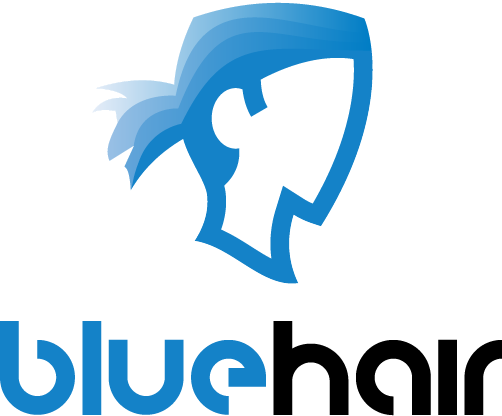emoments: Developing a tool to assess emotions elicited by services
Relevant Keywords:
MSc. Graduation project, evaluating emotions, services, consumer experience, hotels, mobile application, prototyping
Design Goal:
Various methods are available for measuring emotional responses elicited by products (design) or human-product interaction. Up to this point however, no instrument was available that could be used to assess emotional service experiences. The aim of the project was to extend the possibilities of assessing emotions to the realm of experiential service design. As a case study for the project, the focus was laid on the `hotel experience’, that is, the experience of a guest while staying at a hotel.
Project duration:
5 months (full time)
Methods Used:
- Thorough literature research to become acquainted with the project domain.
- Online survey to identify the most common types of emotions experienced by hotel guests and the stimuli associated with these experiences.
- Creative session organized with a panel of users and designers to generate ideas.
- Early prototyping to perform user testing of concepts.
- Creation of wire-frames and navigation flow-charts to define the software’s architecture.
- Hi-Fi prototyping of final concept.
- Usability testing.
THE PROJECT:
This was my Design for Interaction Master of Science graduation project at the Delft University of Technology (TU Delft). My mentor team was composed of Dr. Ir. Pieter Desmet and Dr. Ir. Marieke Sonneveld and my final grade was a 9 (graduated cum laude).
Project background
Until recently, the assessment of a service experience (such as a hotel visit) was done in terms of a single standard: “Satisfaction”. Yet, when consumers are asked about their experience they always have a vivid emotional memory of events, where emotional words like anger, excitement or frustration are often heard. So why not explore the emotional side of experiential services?
Process
To start the project, a thorough literature research was performed in order to gain insights of the service industry and to understand the domain of emotions. The two main conclusions from this analysis phase can be summarized as follows:
- Emotions are a set of reactions to different kind of stimuli and one of their important aspects is that people have the ability to communicate what they feel (subjective feeling) through the use of a rich emotional lexicon and other media.
- Experiential services can be described as several service layers, heterogeneous in nature, with each of them playing a role in stimulating emotional reactions in their own way.
These findings were later confirmed through the use of an online survey in which hotel guests were asked about the type of emotions they normally feel and the stimuli involved. The findings of this survey were used to write a scientific paper to be presented at the EuroCHRIE 2009 conference in late October.
Following this, a creative session was organized with a few designers and none designers in order to generate ideas and to contribute to the creative process prior to conceptualizing.
Ideas were then organized and evaluated, and the 3 most promising ones were identified and further developed to the point of worked out concepts.
Early prototypes of these 3 concepts were developed and tested with several users to evaluate their adequateness within the project’s scope. A final iteration was made an the most promising of the concepts was worked out even further taking into account the findings and comments gathered during user testing.
The final design revolved around a software application for mobile devices, and as such two types of prototypes were built to perform a final user testing:
- A Hi-Fi prototype of the graphical user interface which was used to test the usability of the mobile application.
- A proof-of-concept prototype (Mid-Fi) created for a Windows Mobile platform, which did not have all the features of the final application, but which allowed for the working principle of the tool to be tested.
Description of the final design
 Emoments is a mobile device application that allows you to record how you feel and towards what, while being in a hotel environment. The hotel guests can record the emotional episodes (emoments) they encounter during their visit by showing how they feel through the use of 8 caricatured emotions, and by capturing the stimuli responsible for their emotional reactions through the use of voice recordings, videos and/or photographs. Location coordinates, date and time are also recorded automatically with each emoment saved.
Emoments is a mobile device application that allows you to record how you feel and towards what, while being in a hotel environment. The hotel guests can record the emotional episodes (emoments) they encounter during their visit by showing how they feel through the use of 8 caricatured emotions, and by capturing the stimuli responsible for their emotional reactions through the use of voice recordings, videos and/or photographs. Location coordinates, date and time are also recorded automatically with each emoment saved.
Having a hand-held device that is carried by users throughout the day as an integral part of their routines and which can therefore be used freely at any given time, allows people to report how they feel as events unfold in real time.
The possibility of using pictures, sounds and/or videos means that there is a lot of flexibility in terms of how to capture and describe the stimuli (both tangible and intangible) responsible for the emotions felt and the information gathered by the application is very rich, rendering the data very flexible to allow a wide variety of quantitative and qualitative analysis to be performed on it.
To get more information regarding the final design, please contact me directly (david at guiza.net) and I’ll provide you with a link.
SUPPORTING MATERIAL:
Documents (PDF)
- FINAL REPORT – Developing a tool to assess emotions elicited by services (Güiza Caicedo, 2009)
- POSTER – emoments, a tool to record and assess emotions during a hotel visit (Güiza Caicedo, 2009)
- MSc. Graduation project proposal – Developing a tool to measure emotions towards services (Güiza Caicedo, 2009)















